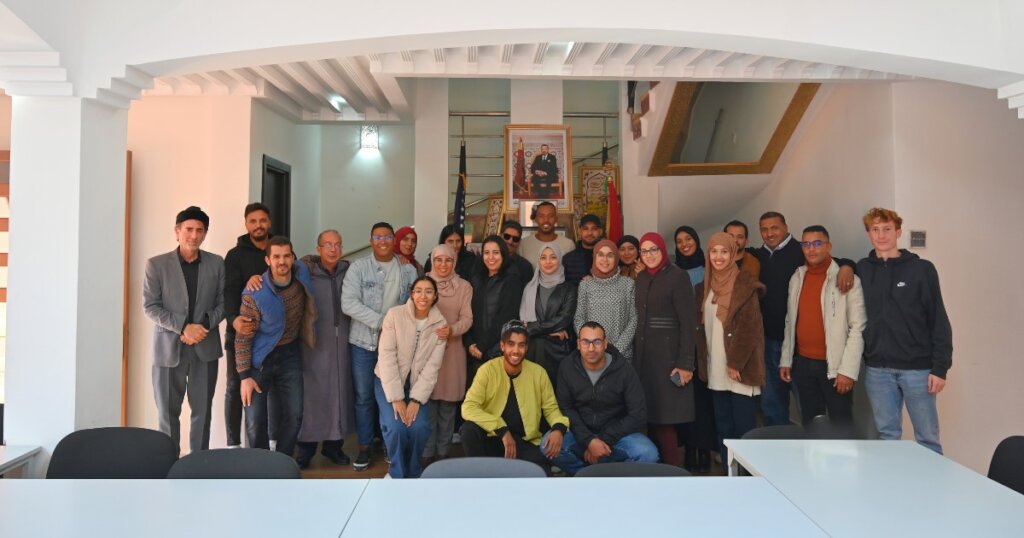![]()
Land, but no water. This is the situation of many farmers around Marrakech in villages like Akrich and Achbarou. Potentially arable land lays barren and dry. If it is a problem for the farmers, it is also a problem for the High Atlas Foundation, who is committed to reversing degradation and desertification of land by planting trees. Said is a project manager at HAF and laughingly sums up the struggle when I ask how HAF finds land that is good for planting.
“We are given the land from our partners, and the land is most of the time not good for planting,” he says. “But we make it good.” This can involve making terraces against erosion or – and president Yossef makes it clear that this is the most expensive aspect of HAF’s work – providing water.
I get to accompany Said on a trip to the plains by Akrich, where we look at the early stages of a project that is supposed to make water accessible to trees and people. We meet Aberrahim, nursery caretaker at HAF and the entrepreneur Ibrahim, who supervises the building of the solar pumping system. He shows us the well that is already dug, waiting for its pump and solar cover, and explains that each farmer, who wants to benefit from the water thus distributed, needs to pay a certain amount. The contributions are thrown into a common pot and can be used if the pump needs maintenance. We walk along the path which the water will take, towards the field which it will irrigate.
As of now, this field is a somewhat hopeless sight. Although its area reaches wide, the soil looks dry and unfriendly. It is hard to imagine that anything could grow there.
The well and one of the fields it will irrigate
And yet, water can change everything. We visit a “working example”, the field of a farmer close by, who has his own solar pump and irrigation system in place. All the stages of a tree’s life appear flourishing in this view: In the background you can see the greenhouses of the Akrich nursery where seeds become saplings; in the foreground grow young fig trees that came from this very nursery some time ago. And in between those two you can see the farmer’s full-grown olive trees.
Multigenerational growing on all pictorial levels
The water, of course, does not only bring life to the trees, but to the people too; our group moves on to the “ribbon cutting” of a drinking water project. Except here, there is no ribbon: just an excavator who digs the first hole for the ditch which will bring clean water from a well downhill to the school of Akrich and Achbarou.
Excavator “ceremony” and soon-to-be bathrooms for the children
Next to the school, Aberrahim shows us the street to Akrich, for now only an unsurfaced road. The village would benefit from its surfacing, for customers to access the shop of the women’s weaving cooperative and for the children who use it all the time to go to school. Said admits that it is hard to find funding for road work, when most donors want to invest in trees. But we need to throw a glance to the side of the road too: The men discuss the path water takes after heavy rainfalls, and how to manage it so that it does not cause too much damage. Climate change has made water management challenging in too many ways. For the times of extreme drought, HAF provides pumping systems as described above and hosts workshops with farmers to address effective and responsible water usage. And yet it is clear that Akrich also needs a system and strategy in place to deal with the heavy rainfalls made unpredictable by global warming. The strategies need to be short term, such as reservoirs that can store rainwater for the times of drought - as well as long term, such as tree planting to sequester carbon dioxide and counteract climate change.
![]()
![]()
![]()
![]()
![Share on Twitter]()
![Share on Facebook]()
